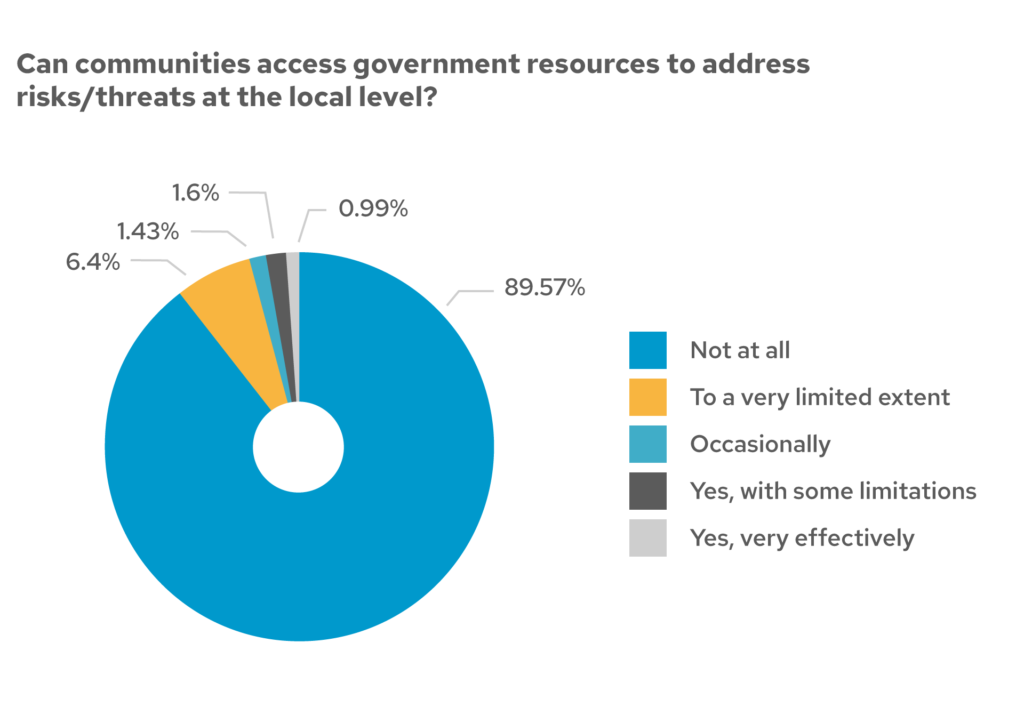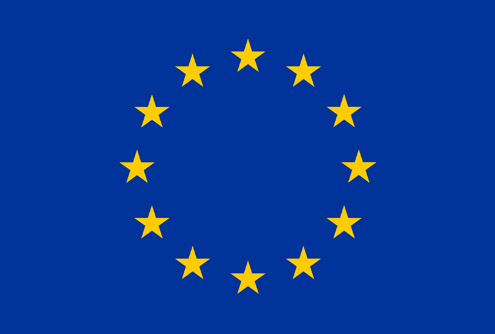VIEWS FROM THE FRONTLINE
Cameroon
We’re working with 15 communities in Cameroon to ensure that development is informed by the perspectives of people most at risk.
As part of our global Views from the Frontline programme we have surveyed community members, civil society organisations and government representatives across the country. Here we present our key findings, conclusions, activities and impact.
Random household surveys
Civil society surveys
Local government surveys
Key findings and conclusions at the national level
- Community-level resilience building plans and activities should focus on addressing the main drivers of risk, especially floods
- Collaboration between government, civil society organisations and local communities, as a successful model for implementing effective disaster risk reduction plans and activities, need to be recognised and institutionalised
- Coherence between climate change adaptation and mitigation, disaster risk reduction and ecosystem management approaches with development, need to be institutionalised
Access to resources
In Cameroon, over 89% of community members surveyed said that they have no access to resources to address risk or threats. Access to resources is essential to risk-informed development because it gives communities the power to lead the implementation of development actions.

Surveys undertaken in Cameroon
Our Views from the Frontline surveys in Cameroon were undertaken in 2019.
Who was surveyed?
We surveyed 1,095 random households, 161 civil society organisations, 156 local government representatives, and undertook 85 community consultations.
Risk locations prioritised
We prioritised four risk areas:
- Ré Southwestern risk zone
- Center risk zone
- Northern risk zone
- Littoral risk zone
Communities surveyed
We surveyed people from 15 communities: Lower Motowoh, Unity Quarters, Mankon Town, Bamenda upstation, Nkolbikok, Nkolbisson, Nkoldoué, Mokolo Ilobi, Maga, Lagdo, Tibati, Mont Ngaoundere, Douala Village, Bois de senge and Makepe missoke.
“We cannot stop the occurrence of disasters but we have to prepare ourselves to ensure that when this happens, the impact should be reduced. Awareness and preparedness should therefore be the key.”
GEADIRR representative, Cameroon
Our impact
Activities undertaken in response to community-level findings and conclusions
- Increased awareness of disaster risk reduction and risk issues by installing community information boards
- Promoted nature-based solutions and protected water catchment areas by planting tress and constructing canals to channel rain water, as well as deploying water cleaning equipment to protect rivers from flooding
- Strengthened engagement of civil society organisations by creating discussion platforms on building resilience
Impact of activities
- The capacity of communities has been strengthened to understand risk and early warning systems for any potential disasters, meaning those at risk are prepared and can take mitigation measures to reduces the impact of disasters
- We’ve strengthened the capacities of community groups on the importance of working in groups and building responsiveness and resilience
- Locals have gained knowledge on floods, landslides, water conservation techniques, environment conservation, and disaster risk reduction (DRR) techniques
- Communities are more involved in the implementation of actions taken to reduce their risk
Taking community action for waste management
Community Members in Mokolo Ntoungou II, central Cameroon agree that climate change and discrimination are key challenges they face. The community view opportunities like access to information, education & awareness as enablers of inclusion in disaster risk management.
In response to the community’s needs, Geotechnology, Environmental Assessment and Disaster Risk (GEADIRR), our local Views from the Frontline partner, led community awareness campaigns and operationalized a community risk management task force on Disaster Risk Reduction (DRR).
GEADIRIR engaged the taskforce in reflecting on different types of hazards in the area and ways of preventing them from turning disasters. Together, they put up sensitization billboards in high risk areas.
Our project partners in Cameroon
Our Views from the Frontline programme is implemented by GNDR member organisations and partners in the country.
National coordinating organisation
Partner organisations
- Ligue pour la Didactique de l’Education à l’Environnement et au Développement Durable
- Association Camerounaise pour le Développement, l’Entraide Sociale et la Protection de l’Environnement
- Community Agriculture and Environmental Protection Association Cameroon
- Association of Cameroonian for OMEP or World Organisation for Early Childhood Education Cameroon National Committee
View all data from Cameroon
You can view all our Views from the Frontline survey data using our data dashboard. You can also learn more about our methodology for selecting at-risk areas and survey respondents.
Project funded by
European Union

Our Views from the Frontline project is funded by the European Union (EU). Content related to this project on our website was made possible by the support of the EU. All content is the sole responsibility of GNDR and does not necessarily reflect the views of the EU.
View their websitePhoto credit
Image by u_3njs8uaf from Pixabay.